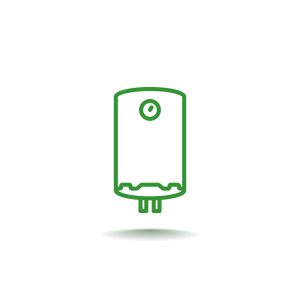As homeowners grow increasingly aware of their energy usage and environmental footprint, the choice between adopting heat pumps and sticking with traditional gas boilers for heating and hot water becomes pivotal.

Both systems present distinct advantages and disadvantages, shaped by factors like upfront and operational costs, environmental effects, and installation demands. Let’s delve into the pros and cons of heat pumps versus gas boilers, aiming to furnish you with the insights needed to make a more enlightened decision regarding your home’s heating solutions.
Pros of Heat Pumps
Energy Efficiency: Heat pumps stand out for their efficiency. They transfer heat from the air or ground outside into your home, using significantly less electricity than what a gas boiler would consume to generate the same heat level. This efficiency can translate into lower operational costs over time.
Environmental Impact: Heat pumps boast a smaller carbon footprint compared to gas boilers. By leveraging renewable resources (such as air or ground heat), they emit far fewer greenhouse gases, marking a crucial step for those aiming to minimize their environmental impact.
Versatility: Offering both heating and cooling, modern heat pumps serve as an all-in-one solution for year-round indoor comfort.
Longevity: Heat pumps generally outlast gas boilers, with a life expectancy of 20 to 25 years with proper upkeep, as opposed to the 10 to 15 years a gas boiler might last.
Government Incentives: To encourage the uptake of more eco-friendly heating options like heat pumps, governments in many regions offer incentives that help mitigate the installation costs, rendering them a more economically feasible choice for homeowners.
Cons of Heat Pumps
Higher Initial Cost: Installing a heat pump system can incur a higher initial expense than a new boiler fitting by a gas safe engineer Glasgow. This upfront investment can deter some homeowners, despite the promise of eventual savings.
Performance in Extreme Cold: Although advancements have made heat pumps increasingly effective in colder climates, their efficiency may wane in extreme cold, necessitating additional heating sources.
Installation Requirements: The setup for heat pumps, particularly ground source types, can be more complex and intrusive, possibly requiring significant changes to your property’s landscape and the laying of underground pipes.
Pros of Gas Boilers
Lower Initial Cost: The acquisition and installation costs for gas boilers are typically lower than those for heat pumps, appealing to budget-conscious individuals.
High Temperature Heat: Capable of producing high-temperature heat swiftly, gas boilers are well-suited for colder regions or large homes needing quick and efficient heating.
Familiar Technology: Many households are already configured for gas boilers, simplifying the process of replacing or upgrading without necessitating extensive modifications.
Cons of Gas Boilers
Environmental Impact: Operating on fossil fuels, gas boilers contribute to carbon emissions and the greenhouse effect, posing a significant concern for environmentally conscious individuals.
Running Costs: Subject to the volatility of gas market prices, the operational expenses of gas boilers can surpass those associated with the more stable electricity costs for running heat pumps.
Lifespan: Generally, gas boilers have a shorter lifespan than heat pumps, potentially leading to more frequent replacements over time.